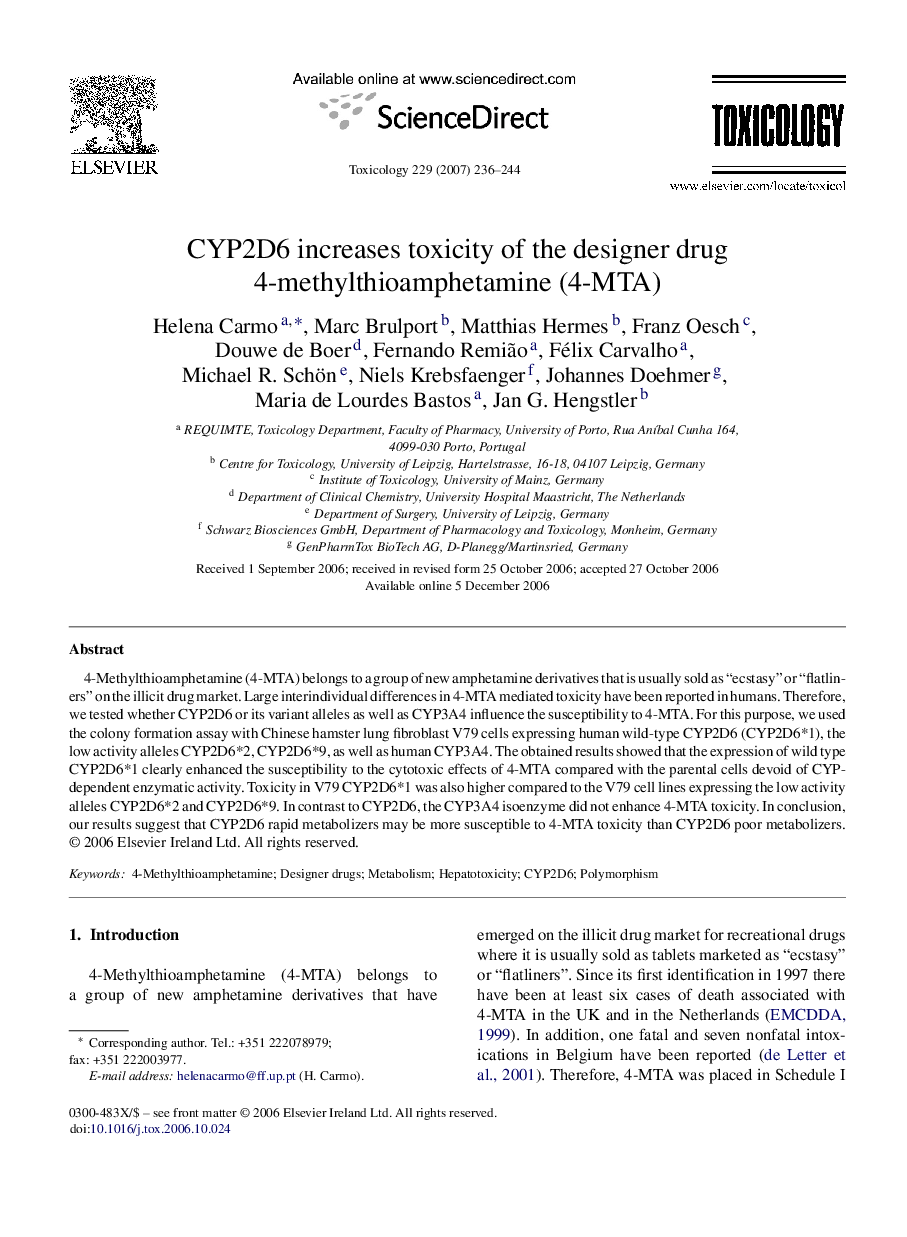| Article ID | Journal | Published Year | Pages | File Type |
|---|---|---|---|---|
| 2597702 | Toxicology | 2007 | 9 Pages |
4-Methylthioamphetamine (4-MTA) belongs to a group of new amphetamine derivatives that is usually sold as “ecstasy” or “flatliners” on the illicit drug market. Large interindividual differences in 4-MTA mediated toxicity have been reported in humans. Therefore, we tested whether CYP2D6 or its variant alleles as well as CYP3A4 influence the susceptibility to 4-MTA. For this purpose, we used the colony formation assay with Chinese hamster lung fibroblast V79 cells expressing human wild-type CYP2D6 (CYP2D6*1), the low activity alleles CYP2D6*2, CYP2D6*9, as well as human CYP3A4. The obtained results showed that the expression of wild type CYP2D6*1 clearly enhanced the susceptibility to the cytotoxic effects of 4-MTA compared with the parental cells devoid of CYP-dependent enzymatic activity. Toxicity in V79 CYP2D6*1 was also higher compared to the V79 cell lines expressing the low activity alleles CYP2D6*2 and CYP2D6*9. In contrast to CYP2D6, the CYP3A4 isoenzyme did not enhance 4-MTA toxicity. In conclusion, our results suggest that CYP2D6 rapid metabolizers may be more susceptible to 4-MTA toxicity than CYP2D6 poor metabolizers.
